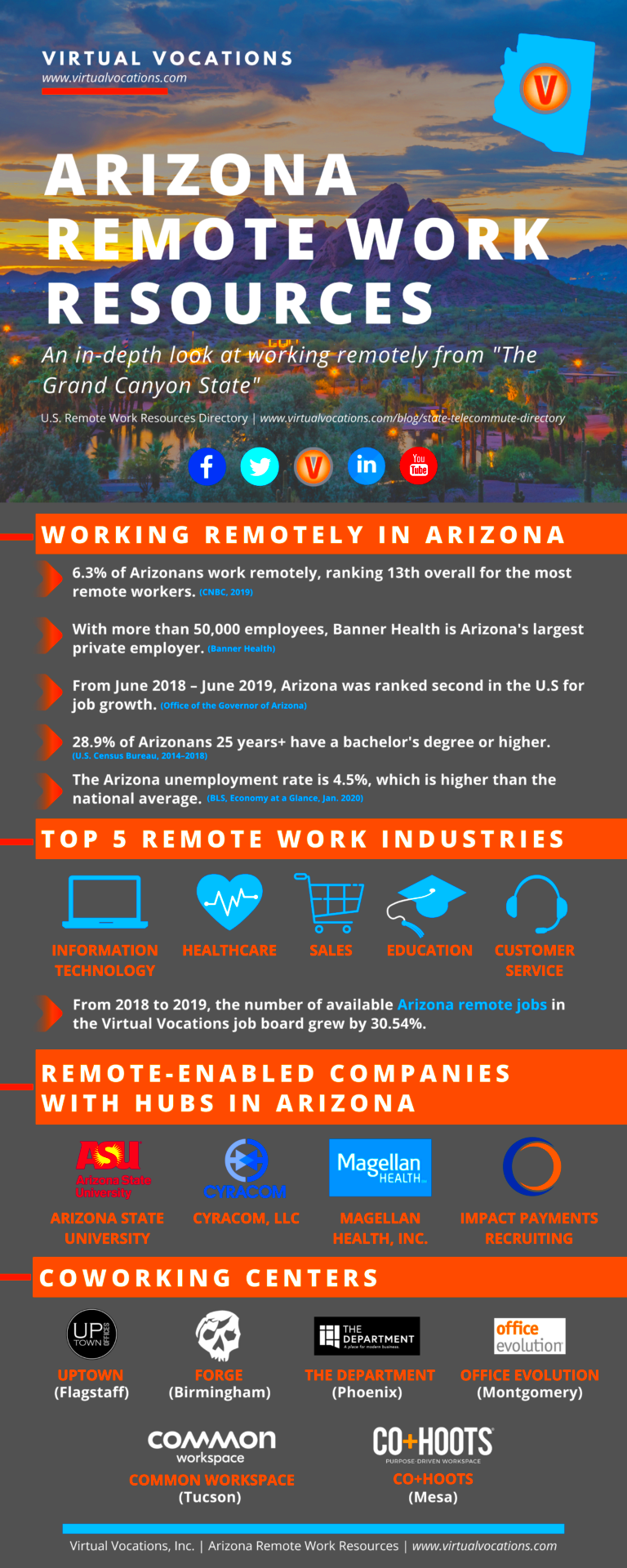Arizona’s Remote Worker Rights and Legal Protections
The popularity of remote work in Arizona has surged with the progress of technology and changing workplace dynamics. Having personally experienced the intricacies of remote work I can attest that this shift involves more than just creating a workspace; it also requires navigating the legal aspects that come with it. Based on my own journey transitioning to remote work can be liberating yet intimidating but being aware of your rights and safeguards makes the process more manageable. In Arizona where the sun shines brightly and work culture is evolving remote work presents opportunities and challenges that we must confront.
Understanding Arizona’s Remote Work Laws

Arizona has a unique take on remote work that is influenced by both federal rules and its own state laws. To give you an idea of the legal landscape here’s a quick summary to help you understand the framework.
- Federal Guidelines: At the federal level, the Fair Labor Standards Act (FLSA) and Occupational Safety and Health Administration (OSHA) regulations apply. These laws cover wage and hour issues and ensure a safe work environment, even if you’re working from home.
- Arizona State Laws: Arizona doesn’t have extensive remote work laws, but certain state laws affect remote employees. For instance, Arizona’s minimum wage and overtime laws apply regardless of where you work. The state also follows federal standards on workplace safety and workers’ compensation.
- Local Regulations: Some cities or municipalities within Arizona might have their own rules affecting remote work. It’s essential to check for any local regulations that might apply to your specific situation.
Staying updated and seeking advice from a professional can greatly help in navigating these rules smoothly. Based on my own experience knowing these regulations well can save you from potential legal problems and make sure you’re in complete compliance.
Employee Rights for Remote Workers

With the rise of work in Arizona it’s important to know your rights. From what I’ve seen and experienced here are some rights you should keep in mind.
- Wage and Hour Protection: Remote workers are entitled to the same wage and hour protections as in-office employees. This includes minimum wage and overtime pay. Employers must accurately track hours worked and compensate accordingly.
- Workplace Safety: Even though you’re working from home, employers are still responsible for ensuring a safe work environment. This includes providing necessary equipment and addressing any hazards that could affect your health and safety.
- Anti-Discrimination Protections: Remote workers are protected from discrimination just like their in-office counterparts. This means that you should not face unfair treatment based on race, gender, disability, or any other protected characteristic.
- Privacy Rights: Your employer should respect your privacy while working remotely. This includes not invading your personal space or accessing personal information without consent.
Based on what I’ve seen these rights play a role in creating a just and equitable workplace. When you’re working from home setting boundaries and being aware of these safeguards can support you in keeping a harmonious balance between your personal life and work and also help avoid any conflicts with your boss.
Legal Protections for Remote Workers
When you work from home in Arizona its important to be aware of your legal rights to create a fair and respectful workplace. Based on my experience exploring these rights has been an enlightening and empowering process. Lets go over the key things you should be aware of.
- Workers’ Compensation: Even if you’re working from home, you’re entitled to workers’ compensation if you’re injured on the job. This means that if you slip on a wet floor or suffer an injury while working, you can claim benefits just like you would in a physical office.
- Employment Discrimination: The same anti-discrimination laws that apply in traditional workplaces also cover remote workers. This means you have the right to work in an environment free from discrimination based on race, gender, disability, or any other protected class.
- Unemployment Benefits: If you find yourself unemployed due to a layoff or termination that wasn’t your fault, you may be eligible for unemployment benefits. The process is similar for remote workers as it is for those working on-site.
- Right to Disconnect: Some states are introducing laws about the right to disconnect, but Arizona hasn’t passed such legislation yet. Nevertheless, maintaining a healthy work-life balance is essential. It’s a good idea to establish clear boundaries with your employer about work hours.
From what I’ve seen being aware of these safeguards can really help alleviate stress and doubt. Its beneficial to have a grasp on your entitlements so you can concentrate on your tasks without fretting over possible legal complications.
Tax Implications for Remote Work in Arizona
Navigating the tax aspects of remote work can be quite a challenge. Based on my personal journey with taxes as a remote employee here’s a straightforward overview to assist you in understanding the tax implications in Arizona.
- State Income Tax: Arizona requires you to pay state income tax on all your earnings, whether you work remotely or on-site. You’ll need to report your income to the Arizona Department of Revenue and file your state tax return accordingly.
- Home Office Deduction: If you use a portion of your home exclusively for work, you might be eligible for a home office deduction. This can help reduce your taxable income, but it’s essential to maintain detailed records and meet specific IRS requirements.
- Business Expenses: Remote workers can deduct certain business expenses, such as office supplies and internet costs, provided these expenses are directly related to your job. Keep thorough records and receipts to substantiate these deductions.
- State vs. Federal Taxes: Remember that state tax laws might differ from federal tax laws. It’s beneficial to consult a tax professional familiar with remote work to ensure you’re complying with all regulations and making the most of available deductions.
Based on what I’ve been through dealing with taxes can be overwhelming at times but being organized and well informed can really help. Don’t hesitate to reach out to experts for guidance to make sure you’re navigating these challenges smoothly.
Employment Contracts and Remote Work Agreements
For remote workers having a strong employment contract or remote work agreement is vital. Based on my experiences I’ve come to realize the importance of having well defined agreements. Here are some key aspects to consider when reviewing these documents.
- Clear Job Expectations: Your contract should clearly outline your job responsibilities, performance expectations, and work hours. This helps prevent misunderstandings and ensures both you and your employer have a mutual understanding of your role.
- Compensation and Benefits: Make sure the agreement details your salary, payment schedule, and any benefits you’re entitled to. This might include health insurance, retirement contributions, and any allowances for home office equipment.
- Confidentiality and Security: Remote work often involves handling sensitive information. Your contract should specify how you should protect confidential data and any measures you need to take to ensure information security.
- Termination Conditions: The agreement should outline the conditions under which either party can terminate the employment. This includes notice periods and any severance arrangements, ensuring clarity if circumstances change.
I believe that having a solid employment agreement is crucial to protecting yourself from any future disputes. It sets out the terms of your working relationship and ensures that both parties have a mutual understanding. Take the time to go through these papers thoroughly and dont hesitate to seek legal counsel if necessary.
Dispute Resolution for Remote Workers
Resolving disagreements as a remote employee can be quite tricky. Based on my experiences addressing conflicts remotely usually calls for a distinct strategy compared to handling them in a conventional office environment. Lets delve into some effective ways to navigate disputes.
- Effective Communication: Clear and open communication is vital in resolving disputes. Make sure to document all interactions and issues in writing. This not only helps in keeping track of the problem but also provides a clear record if the issue escalates.
- Seek Mediation: If direct communication doesn’t resolve the issue, consider mediation. Many companies offer mediation services as part of their HR functions. Mediation can help facilitate a constructive conversation and find a compromise that works for both parties.
- Follow Company Procedures: Most companies have established procedures for handling disputes. Familiarize yourself with these procedures and follow them carefully. This often involves reporting the issue to HR or a designated mediator and working through the formal channels to seek resolution.
- Legal Recourse: If the dispute cannot be resolved through internal channels, you may need to explore legal options. This could involve filing a complaint with relevant labor boards or seeking legal advice to understand your options and rights.
In my opinion dealing with disagreements online may feel less intimate yet it’s important to tackle problems in a timely manner. Maintaining composure and prioritizing communication can frequently result in outcomes.
Future Trends in Remote Work Legislation
The world of remote work is changing and so are the laws that govern it. Drawing from trends and my own insights here’s a sneak peek into what the future could bring.
- Increased Legal Protections: As remote work becomes more mainstream, there is a growing call for enhanced legal protections for remote workers. This may include clearer guidelines on work hours, mental health support, and workplace safety, ensuring that remote workers have protections similar to their in-office counterparts.
- Flexibility in Work Arrangements: Future legislation may focus on promoting flexible work arrangements. This could include regulations supporting hybrid work models, where employees can split their time between home and the office, offering greater work-life balance.
- Enhanced Data Security Regulations: With the rise of remote work, data security has become a top concern. Expect to see stricter regulations on how companies handle sensitive information and how remote workers must protect their data, aiming to prevent breaches and ensure privacy.
- Global Standards for Remote Work: As remote work transcends borders, there may be efforts to establish global standards. These could harmonize regulations across different countries, making it easier for international remote workers to understand their rights and obligations.
I believe it is crucial to keep up with these trends to adjust to upcoming changes. By embracing these advancements we can create a more stable and harmonious remote work environment.
FAQ
Q: What should I do if I face issues with my employer regarding remote work?
Begin by noting down your issues and attempting to address them through honest conversation. If that proves ineffective proceed with your organizations conflict resolution protocols or consider mediation. If required you might have to look into avenues for resolving the matter.
Q: Can I claim home office expenses on my taxes?
Absolutely, if you dedicate a portion of your residence solely for work purposes you could qualify for a home office tax break. Its important to maintain thorough documentation of your costs and seek advice from an expert to grasp the precise criteria.
Q: Are there specific laws in Arizona that protect remote workers?
Although Arizona lacks specific laws for remote work employees are still protected by existing employment regulations such as those related to wages and working hours workplace safety standards and anti discrimination safeguards.
Q: How can I ensure my remote work agreement is comprehensive?
Take a close look at your contract to make sure it addresses things like your job responsibilities, pay, confidentiality and how things will end if needed. Getting some legal guidance can be beneficial to ensure that all the details of your remote work setup are well outlined and reasonable.
Conclusion
Exploring the realm of remote work in Arizona brings its share of thrills and obstacles. Through my personal experience as a remote employee I’ve discovered that being well versed in the legal aspects and knowing your rights can greatly impact your journey. Whether it’s navigating conflicts managing tax matters or ensuring your remote work contract is airtight being proactive and well informed is crucial. Approaching these elements with confidence and transparency contributes to a remote work experience that is both enriching and balanced. Keep in mind that every challenge presents a chance to grow and adjust making your remote work routine more seamless and satisfying.


